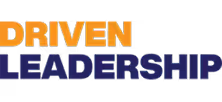Accountability Training for Managers in Long Beach, CA


Leadership Training Accountability Training for Managers in Long Beach, CA
Strong accountability is the backbone of consistent team performance. For managers in Long Beach, CA — whether leading teams at the Port, hospitality operations near the waterfront, university departments, tech startups, or municipal services — accountability-focused leadership training turns intentions into measurable outcomes. This page explains the training modules, common accountability challenges in Long Beach workplaces, the step-by-step implementation approach, corrective coaching methods, and how to measure sustained impact on team performance.
Why accountability training matters in Long Beach
Long Beach organizations operate in a unique ecosystem: a busy international port, seasonal tourism, a large university presence, and a diverse workforce with hybrid schedules. Those factors create specific accountability challenges:
- Variable shift patterns and seasonal staffing in hospitality and logistics
- Distributed teams and hybrid work models that complicate oversight
- High turnover in service industries, which stresses onboarding and performance consistency
- Cross-functional projects between operations, logistics, and corporate teams
Accountability training for managers focuses on closing those gaps: setting clear expectations, tracking performance reliably, giving corrective feedback that sticks, and building cultures where teams take ownership. The result is reduced rework, higher on-time delivery, better customer experiences, and retained talent.
Common accountability issues we address
Managers typically report recurring problems that training aims to fix:
- Unclear expectations: team members unsure what “good” looks like
- Inconsistent follow-through: missed deadlines or neglecting agreed actions
- Fear of giving corrective feedback: managers avoid confronting performance gaps
- Poor measurement: no consistent metrics or weak tracking systems
- Compliance and handoff breakdowns: important in port operations and shift work
- Low psychological safety: team members reluctant to own mistakes or report issues
Each training module is designed to resolve these pain points in practical, role-specific ways for Long Beach environments.
Training modules — what managers learn
Training uses experiential learning aligned with advanced leadership programs and tools like The Forge and Summit Online Academy. Modules are concise, practical, and customizable to industry context.
- Setting Clear Expectations
- Defining role outcomes and non-negotiables
- Translating strategic priorities into daily tasks
- Writing measurable job-level objectives and acceptance criteria
- Goal Frameworks and Alignment
- Applying OKRs, SMART goals, and RACI for clarity across teams
- Cascading objectives from organizational goals to front-line tasks
- Performance Tracking and Data
- Choosing meaningful KPIs for operations, service, and knowledge work
- Building simple dashboards and weekly scorecards
- Using short-cycle metrics for high-turnover or shift-based teams
- Feedback and Coaching Techniques
- Structured models: SBI (Situation-Behavior-Impact), DESC, and feedforward
- Real-time coaching vs scheduled performance conversations
- Balancing positive reinforcement with corrective coaching
- Corrective Coaching for Behavior Change
- Root-cause conversations: skill gaps, motivation, systems obstacles
- Creating behavior-based development plans with timelines
- Follow-up protocols and escalation ladders
- Implementation Plans and Process Integration
- Embedding accountability into daily standups, shift handovers, and team rituals
- Role-specific checklists for frontline supervisors and managers
- Change management techniques to gain adoption quickly
- Measurement and Continuous Improvement
- Designing impact metrics (quality, timeliness, customer satisfaction, retention)
- Running short experiments and A/B approaches to process fixes
- Building a cycle of review, adjust, and scale
Diagnostic and implementation process
Training begins with a pragmatic diagnostic tailored to your Long Beach context:
- Rapid assessment: interviews and a 30-day performance snapshot to identify friction points
- Priority setting: select 2–3 high-impact accountability practices to implement immediately
- Customized curriculum: real-world scenarios based on port logistics, hospitality shifts, academic departments, or hybrid teams
- Implementation sprints: 30- to 90-day execution plans with weekly checkpoints
- Coaching and reinforcement: leader coaching sessions and peer practice labs to embed new habits
This phased approach ensures training is not academic but translates immediately to measurable changes in the way managers lead.
How corrective coaching works in practice
Corrective coaching is a skill—not punishment. Effective corrective coaching taught in the program includes:
- Immediate, private conversations focused on specific behaviors
- Clear description of the gap, impact on the team or customer, and expected change
- Joint development of a short plan: actions, support, timelines, and measures
- Follow-through check-ins and updates to the performance track record
- Escalation only when documented, reasonable expectations are unmet
Managers learn to conduct these conversations with confidence and consistency, which reduces defensiveness and increases follow-through.
Measuring impact and ROI
Accountability training emphasizes measurable results. Typical impact measures include:
- Time-to-completion and on-time delivery rate improvements
- Error and rework reduction percentages
- Team engagement and retention trends
- Customer satisfaction and net promoter score changes
- Manager confidence and frequency of documented coaching conversations
Reporting templates and simple dashboards help managers see progress weekly, enabling rapid course corrections and demonstrating ROI to leadership.
Long-term benefits and maintenance
Sustainable accountability culture requires routine reinforcement:
- Short weekly rituals: 10–15 minute standups that review commitments and blockers
- Monthly performance huddles that use scorecards, not anecdotes
- Leadership calibration sessions to keep expectations consistent across departments
- Ongoing manager coaching and refresh workshops for new supervisors
For Long Beach organizations facing seasonality, diverse workforce compositions, and hybrid work patterns, these practices create resilient teams that perform reliably through peaks and transitions.
Final note on approach
This accountability training combines experiential learning with practical tools and measurable outcomes. Training content is customized to Long Beach realities — from port operations to university departments — and focuses on empowering managers to set clear expectations, measure performance, give effective feedback, and sustain behavior change so teams deliver consistent, visible results.

